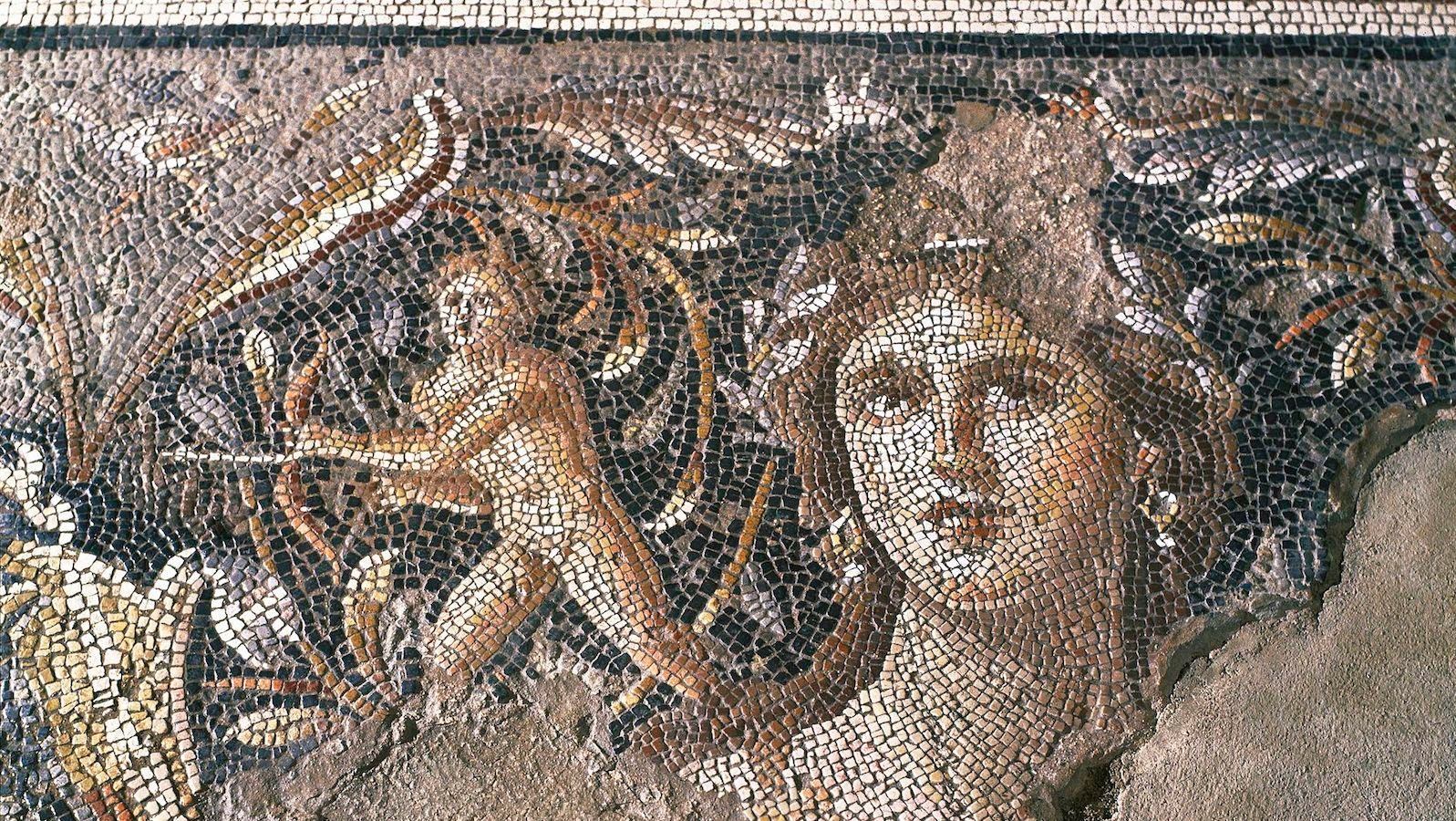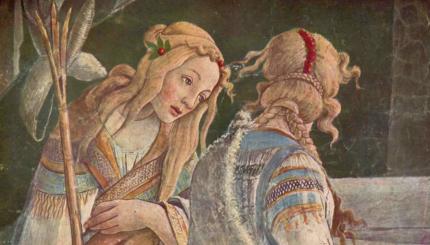Beruriah’s name is mentioned in the Babylonian Talmud and in various ancient and medieval writings, and she has become legendary. Although possibly fictional, the following anecdotes convey a typical account of Beruriah’s life. Beruriah, a daughter of the great sage R. Hananiah ben Teradion, was an accomplished scholar. Even as a young girl, her intelligence surpassed that of her brother. It was said she learned “three hundred laws from three hundred teachers in one day” (B. Pesahim 62b). She married R. Meir, the miracle worker and one of the great sages of the Mishnaic period.
Challenging the Status Quo
Tragedy stalked Beruriah and her family. Her father was martyred by the Romans, and her mother and brother also died violently. Her two sons died suddenly in a single day, and her sister was carried off into exile. Beruriah could be loving and gentle, as she was with her husband, Meir, and also arrogant and biting, even to great scholars. She ridiculed a sectarian (B. Berakhot 10a), derided an erring student (B. Eruvin 53b 54a), and made a fool of R. Jose the Galilean when he met her on the road (B. Eruvin 53b).
When she mocked the sages’ belief that women are weak and easily seduced, she challenged the prevailing wisdom of her time and came to a shameful end, proving the contention of the Rabbis that any woman who studies excessively, like Beruriah, is vulnerable to sexual sin.
Theories About Bruriah
These accounts concerning Beruriah are made up of different components, most written much later by many different men. In the Babylonian Talmud she is called the wife of R. Meir, pupil of R. Akiva. In the two passages about her in the Tosefta (an earlier compilation) she is referred to once by name with no association to any male relative (Tos. Kelim, Bava Metzia 1:6), and the second time as the unnamed daughter of R. Hananiah (Tos. Kelim, Bava Kamma 4:17). Because of these variations, it has been suggested that perhaps two or even three historical women became incorporated into a single persona. One is Beruriah the scholar, another is the wife of R. Meir, and a third is the daughter of R. Hananiah ben Teradion. In the stories from the Babylonian Talmud that portrayed Beruriah as a scholar, her name was mentioned alone, without reference to husband or father. In these reports she was quick, sarcastic, and knowledgeable in areas beyond domestic issues.
With your help, My Jewish Learning can provide endless opportunities for learning, connection and discovery.
In the stories that refer to Beruriah as R. Meir’s wife, she is compassionate, gentle, patient, and understanding as well as wise. She quoted Bible passages to her husband in order to improve the quality of his prayer (B. Berakhot 10a), and comforted him when their children died. But these examples of Beruriah’s emotional strength and intellectual ability are not the sum total of her story.
A Plot of Seduction
In the Middle Ages, a plot of seduction and shame was superimposed on the heroic character of Beruriah. The shocking account was first written down by Rashi in the 11th century as part of his commentary to the Talmud (B. Avodah Zarah 18b). The passage itself alludes to the fact that R. Meir had to flee from the Romans because he had rescued his wife’s (Beruriah’s) sister from a Roman brothel. Rashi adds his own postscript to this passage: “But some say [he had to flee] because of the Beruriah incident.”
According to Rashi’s explanation, Meir arranged the seduction of his wife by one of his pupils in order to prove the validity of the Talmudic claim that women are light-minded. After many refusals, Beruriah finally yielded to the student’s sexual advances. When she realized that her husband had set the trap for her, she hung herself and Meir ran away out of shame.
A Heroine for All of Time
This incident, while not part of the original Talmudic composite, raises some disturbing questions: Could a woman such as Beruriah have existed in the land of Israel in the second century? If the education of women was rare, then Beruriah was more likely an exception or a legend. Whether she was fictional or historical, why did Rashi feel obliged to damage the reputation of a righteous and learned woman by writing down these stories? Despite the unanswered questions associated with her, Beruriah’s name continues to resonate in women’s history and she remains an exemplary heroine for scholarly Jewish women.
The Death of Beruriah’s Sons
This legend from a post-talmudic source illustrates Beruriah’s strength and religious faith. “Some time ago a man came and gave me a deposit in trust, and now he comes to claim that deposit. Shall we return it or not?” He answered her: “My daughter, whoever has a deposit in trust, must he not return it to its owner?” She said to him: “Had you not said so, I would not have returned it.” Beruriah then took his hand and brought him up to the room [where their sons were lying] and drew him near the bed and drew down the sheet, and he saw the two of them dead and collapsed on the bed. He began to cry … at the same time she [Beruriah] said to R. Meir: “Did you not say we must return the deposit to its owner? It is said, the Lord has given, the Lord has taken away. Blessed be the name of the Lord.” (Midrash Proverbs 37: 76-29)
Reprinted with permission from The JPS Guide To Jewish Women, (Jewish Publication Society).
Talmud
Pronounced: TALL-mud, Origin: Hebrew, the set of teachings and commentaries on the Torah that form the basis for Jewish law. Comprised of the Mishnah and the Gemara, it contains the opinions of thousands of rabbis from different periods in Jewish history.



